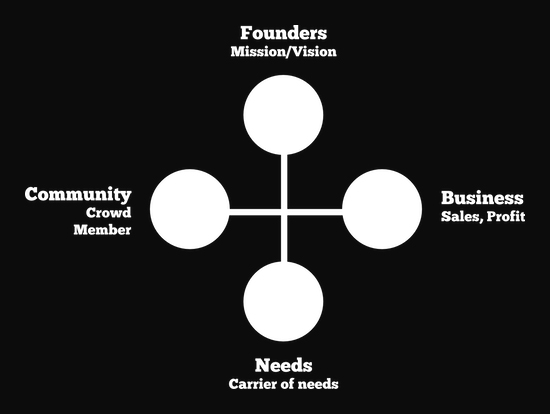Are you running a project within the civic tech field? Then you recognise “The Two Money Problems”, where the first problem is about getting started and the second is about sustaining and scaling your solution over time.
How can we deal with money, funding and finances in such a way that it supports the business model over time? How does it matter if we use venture capital, crowdfunding or public grants to power our organizations?
Where our funding comes from surely affects our goals and behavior, which we believe suggests that we both need to be aware how we are affected and make strategic choices, but also that we need to lose some respect for money issues. They are important so it’s important that we are not scared of them or outsource financial topics to a chosen few such as the CFO.
When
5 May 2021, 16:00 to 17:30 CEST [UTC+2]
Where
Digital, wherever you are, on Zoom (you get a Zoom-link after you register)
The lab is free to join and all you have to do is sign up. Sign up here: Civic Tech Lab: The Two Money Problems| Eventbrite
The entry point for this lab
There are two major money problems for projects within the civic tech field:
- The investment -problem: money to start off and build up.
- Sustainable operation. The long term operation -problem: money for covering daily operations.
During the lab we will explore actual real life solutions to these two problems. We will also explore how initiatives over time evolve strategies to solve the need for money. A civic tech lab is always practical so you will during the lab get to talk about the solutions together with us and try tools and methods that can help you in your work.
Who can participate?
You can participate from wherever you are in the world. The lab will be in English and is aimed to all who run civic tech projects, or planning to do so. We encourage participation from at least two people from the same organisation or project in the lab, so that you can work together on exercises and better support your organisation to absorb and apply what you learn.
Special guest
Agaric Coop. Agaric is a worker-owned cooperative specializing in building tools and websites that respect your freedom. Agaric also provide training and consultation to meet your goals. Everything they do is part of the purpose to help all people gain the most power possible over their own lives.
We plan to bring in cases with more and other experiences, highlighting different strategies to raise money for both investment and daily operations depending on the topics and questions raised here in the forum/thread.
What is a worker-owned cooperative?
In a worker cooperative each employee is also an owner and takes part in making decisions democratically, fostering a culture of honesty and accountability. You will have a shared part in profit and value created.
Facilitators
The lab will be facilitated by me, Sven Bartilsson, and Jonas Bergvall from Coompanion in Sweden. Coompanion is a Swedish supporting company (a cooperative) for cooperatives and social entrepreneurship. You can find us at 25 locations all over Sweden where we offer business consultancy and development services, financed in part by Tillväxtverket (the Swedish Agency for Economical and Regional Growth).
As our helpers we have Pernilla Näsfors Östmar and Mattias Jägerskog from Civic Tech Sweden. Civic Tech Sweden is the growing community in Sweden for people working with technology for the common good and digital tools for community + democracy + transparency.
The conversation starts now
During the weeks leading up to the lab we will post economic models and food for thought in the forum thread below. You can ask both me and @ jonas questions here in the thread. To start with, we also have a question for you: How have you lost respect for money issues? We love to hear your stories!
Don’t forget to sign up for the lab here.
More questions?
Write your question below or send us an e-mail!
Sven Bartilsson - @SvenB
sven.bartilsson@coompanion.se
Jonas Bergvall - @Jonas
jonas.bergvall@coompanion.se

